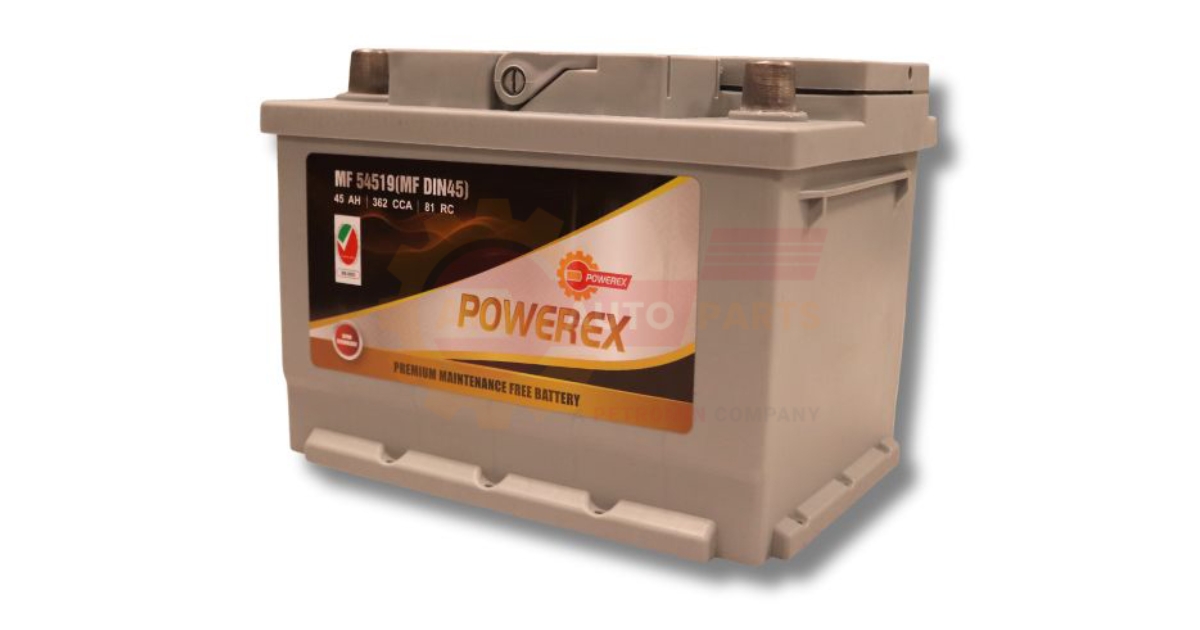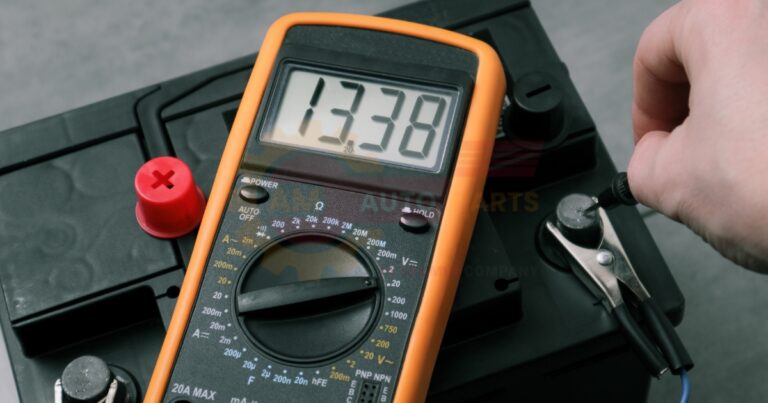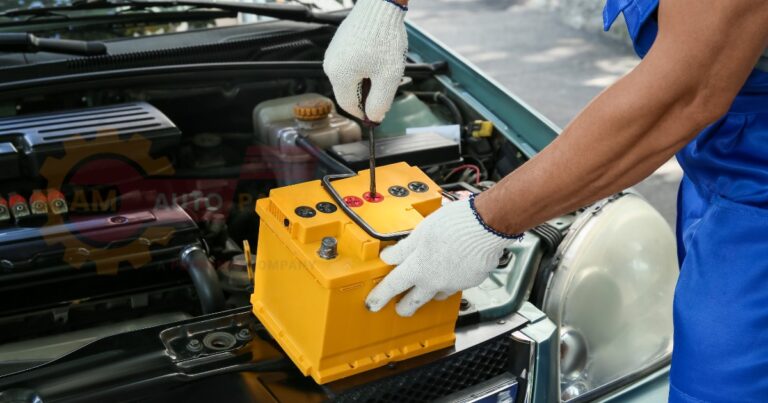How Much Car Battery Last: A Comprehensive Guide
Average lifespan of car batteries
The average lifespan of a car battery is generally between 3 to 5 years. This range can vary based on several factors, including the type of battery, the vehicle’s usage, and environmental conditions. According to a study by Battery Council International, most car batteries fall within this lifespan.
- Standard batteries : 3-5 years
- High-performance batteries : 4-6 years
- Deep-cycle batteries : 4-7 years
Factors affecting battery longevity
Several factors can influence how long a car battery lasts. These include the climate, driving habits, and maintenance practices. Understanding these factors can help you maximize your battery’s lifespan.
- Climate : Extreme temperatures can shorten battery life.
- Driving habits : Frequent short trips can prevent the battery from fully charging.
- Maintenance : Regular maintenance can extend battery life.
What impacts car battery life expectancy?
Climate and temperature effects
Climate plays a significant role in determining how long a car battery lasts. Extreme temperatures, both hot and cold, can adversely affect battery performance. In hot climates, the heat can cause the battery fluid to evaporate, leading to internal damage. Conversely, cold weather can slow down the chemical reactions inside the battery, making it harder to start the engine.
- Hot climates : Accelerates fluid evaporation
- Cold climates : Slows chemical reactions
Driving habits and frequency
Your driving habits and the frequency of your trips can also impact your car battery’s lifespan. Frequent short trips can prevent the battery from fully charging, leading to a shorter lifespan. On the other hand, regular long drives can help keep the battery charged and in good condition.
- Short trips : Prevents full charging
- Long drives : Helps maintain charge
Vehicle maintenance practices
Proper vehicle maintenance is crucial for extending your car battery’s life. Regularly checking the battery’s condition, ensuring it is securely fastened, and keeping it clean can all contribute to a longer lifespan. Neglecting these practices can lead to premature battery failure.
- Regular checks : Monitor battery condition
- Secure fastening : Prevents damage
- Clean battery : Avoids corrosion
Signs your car battery is nearing the end of its life 
Warning indicators on the dashboard
One of the first signs that your car battery is nearing the end of its life is the appearance of warning indicators on the dashboard. These indicators can alert you to potential issues with your battery, allowing you to address them before they become serious problems.
- Battery warning light : Indicates battery issues
- Check engine light : Can signal battery problems
Slow engine crank
A slow engine crank is another common sign that your car battery may be failing. If you notice that your engine is taking longer to start than usual, it could be a sign that your battery is losing its charge and may need to be replaced soon.
- Delayed start : Indicates weak battery
- Frequent cranking : Sign of battery failure
Dimming headlights and electrical issues
Dimming headlights and other electrical issues can also indicate that your car battery is nearing the end of its life. If you notice that your headlights are not as bright as they used to be or that other electrical components are malfunctioning, it may be time to check your battery.
- Dimming lights : Sign of low battery charge
- Electrical malfunctions : Indicates battery issues
Extending your car battery’s lifespan
Regular testing and maintenance
Regular testing and maintenance are essential for extending your car battery’s lifespan. By regularly checking the battery’s condition and ensuring it is properly maintained, you can help prevent premature failure and extend its life.
- Battery tests : Check voltage and condition
- Routine maintenance : Prevents issues
Proper battery installation and fastening
Ensuring that your battery is properly installed and securely fastened is crucial for its longevity. A loose battery can cause vibrations that can damage the internal components, leading to a shorter lifespan.
- Secure installation : Prevents damage
- Proper fastening : Ensures stability
Corrosion prevention techniques
Corrosion can significantly reduce your car battery’s lifespan. By regularly cleaning the battery terminals and applying anti-corrosion sprays, you can help prevent corrosion and extend the life of your battery.
- Clean terminals : Prevents corrosion
- Anti-corrosion spray : Protects battery
Choosing the right replacement battery 
Understanding battery group numbers
When choosing a replacement battery, it’s essential to understand battery group numbers. These numbers indicate the battery’s physical size, terminal locations, and type. Selecting the correct group number ensures that the battery will fit properly in your vehicle.
- Group numbers : Indicate size and type
- Proper fit : Ensures compatibility
Cold cranking amps (CCA) ratings explained
Cold cranking amps (CCA) ratings are crucial when selecting a replacement battery. The CCA rating indicates the battery’s ability to start an engine in cold temperatures. A higher CCA rating means the battery can provide more power to start the engine in cold conditions.
- CCA rating : Indicates starting power
- Higher CCA : Better for cold climates
Importance of proper fit and specifications
Choosing a battery that fits properly and meets your vehicle’s specifications is essential for optimal performance. A battery that is too large or too small can cause installation issues and may not provide the necessary power for your vehicle.
- Proper fit : Ensures easy installation
- Correct specifications : Optimal performance
Tips for maintaining optimal battery performance
Regular driving and avoiding short trips
Regular driving and avoiding short trips can help maintain your car battery’s performance. Short trips can prevent the battery from fully charging, leading to a shorter lifespan. Aim for longer drives to keep the battery charged.
- Long drives : Maintain battery charge
- Avoid short trips : Prevents undercharging
Keeping the battery clean and dry
Keeping your car battery clean and dry is essential for optimal performance. Dirt and moisture can cause corrosion, which can reduce the battery’s lifespan. Regularly clean the battery terminals and ensure the battery is dry.
- Clean terminals : Prevents corrosion
- Dry battery : Avoids damage
Using a battery maintainer for long-term storage
If you plan to store your vehicle for an extended period, using a battery maintainer can help keep the battery charged and in good condition. A battery maintainer provides a low, steady charge to prevent the battery from losing its charge over time.
- Battery maintainer : Keeps battery charged
- Long-term storage : Prevents discharge
The role of climate in battery longevity
How extreme temperatures affect battery life
Extreme temperatures can significantly impact your car battery’s longevity. Hot temperatures can cause the battery fluid to evaporate, leading to internal damage. Cold temperatures can slow down the chemical reactions inside the battery, making it harder to start the engine.
- Hot temperatures : Accelerates fluid evaporation
- Cold temperatures : Slows chemical reactions
Adapting maintenance routines for different climates
Adapting your maintenance routines based on the climate can help extend your car battery’s life. In hot climates, regularly check the battery fluid levels and ensure proper ventilation. In cold climates, keep the battery fully charged and consider using a battery heater.
- Hot climates : Check fluid levels
- Cold climates : Use battery heater
Understanding the car’s charging system
The alternator’s role in battery health
The alternator plays a crucial role in maintaining your car battery’s health. It charges the battery while the engine is running, ensuring that the battery remains charged. A malfunctioning alternator can lead to a dead battery.
- Alternator : Charges the battery
- Malfunction : Leads to dead battery
Identifying charging system issues
Identifying issues with your car’s charging system can help prevent battery problems. Common signs of charging system issues include dimming headlights, warning lights on the dashboard, and a dead battery. Regularly check the alternator and other components to ensure they are functioning correctly. Car Battery Voltage is the electrical power stored in a car’s battery Multimeter car testing helps find problems in car electrical parts It checks if wires and batteries are working right in vehicles
Recharge dead battery by connecting it to a power source This can bring your device back to life and make it work again Battery capacity measurement
Car battery production involves making powerful energy storage devices These batteries are essential for starting and powering vehicles Vehicle energy solutions offer new ways to power cars and trucks These include electric batteries hydrogen fuel cells and other clean options
Battery lifespan varies Different batteries last for different amounts of time depending on how they are used and taken care of Battery replacement threshold is the point when a device’s battery becomes too weak and needs to be changed It helps users know when it’s time to get a new battery for their gadget
Battery voltage range The Push start automobile Cars with
Vehicle power optimization helps cars use less fuel and go farther It makes engines work better so vehicles can be more efficient
- Dimming headlights : Sign of charging issues
- Warning lights : Indicates problems
When to seek professional help for battery issues
Diagnostic services offered by AM Autoparts
If you experience battery issues, seeking professional help can ensure that the problem is correctly diagnosed and resolved. AM Autoparts offers diagnostic services to identify battery problems and recommend the best course of action.
- Professional diagnostics : Accurate problem identification
- AM Autoparts services : Expert recommendations
Benefits of expert battery replacement
Expert battery replacement offers several benefits, including proper installation, ensuring the correct fit, and verifying that the battery meets your vehicle’s specifications. Professional installation can help prevent future issues and extend the battery’s lifespan.
- Proper installation : Ensures correct fit
- Expert replacement : Prevents future issues
By following these guidelines and understanding the factors that impact your car battery’s lifespan, you can ensure that your battery lasts as long as possible. Regular maintenance, proper installation, and choosing the right replacement battery are all crucial steps in maximizing your car battery’s life.
Frequently Asked Questions (FAQs)
How often should you replace your car battery?
You should replace your car battery every 3 to 5 years, depending on various factors such as climate, driving habits, and maintenance practices. Regular testing can help determine when it’s time for a replacement.
Can a car battery last 10 years?
While it’s rare, some high-quality batteries can last up to 10 years with proper maintenance and ideal conditions. However, most car batteries typically last between 3 to 5 years.
What kills a car battery quickly?
Several factors can kill a car battery quickly, including extreme temperatures, frequent short trips, and lack of maintenance. Leaving lights or accessories on when the engine is off can also drain the battery.
How do I know if my car needs a new battery?
You may need a new battery if you notice warning indicators on the dashboard, a slow engine crank, or dimming headlights. Regular testing can also help determine if your battery is nearing the end of its life.






